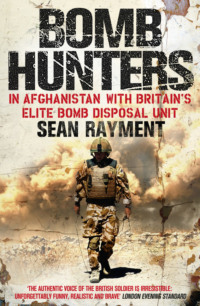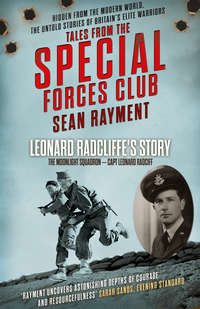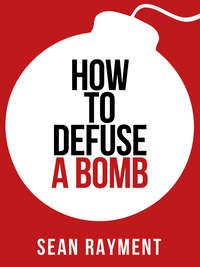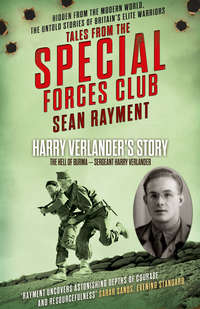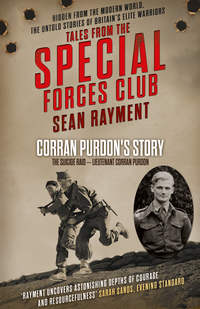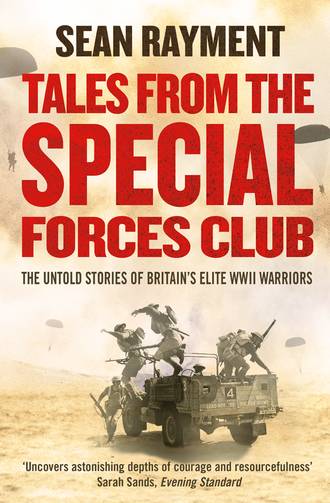
Полная версия
Tales from the Special Forces Club
The top brass had decided that there was no better force in the British Army than the LRDG to help train, equip and organise the various partisan groups fighting the Germans and Italians. But it would be a totally different type of warfare from that which the organisation had experienced in the vastness of the Libyan desert, where there was always plenty of room to hide.
The LRDG’s mountain base was to be the Cedars Hotel in Lebanon, the British Army’s Mountain Warfare Training Centre. The plan, for these one-time desert warriors, was to learn how to ski, climb and navigate in the mountains. For Jimmy and his colleagues it was an opportunity to recover from the months of arduous desert living, and although the training was going to be tough, the change, in many respects, was as good as a rest.
‘It was quite different to anything we had done before and a lot of fun although the training was extremely hard. The officers lived in the hotel and we were billeted in large Indian tents and it was all quite comfortable. The officer in charge of the training school was a character called Jimmy Riddle. He was said to have been an Olympic skier, and I can well believe it having seen him perform. The instructor of our little group was a Czech, a private soldier. He took us in hand, but not very effectively as far as I was concerned because I was never any good at skiing. I was also set to learn Greek, at which I tried my best. As well as skiing, there were long hikes through the mountains, and we learnt how to live off dried rations. We also had to learn how to navigate and fight in this new environment which was obviously very different from the desert.
‘We remained at the Cedars until early September 1943, at which point we were told that we were going to be trained as parachutists. Again, everyone thought this was great fun. But first of all we needed to have a colour-blindness test because when it came to jumping out of aeroplanes we needed to be able to see the difference between red and green lights. We were all lined up ready to do this test at the medical officer’s office, but all he had to test us with was the coloured cover of a magazine.
‘He pointed to different colours and you had to say what they were. I was colour blind so I obviously got it wrong, but it didn’t seem to matter – the medical officer said something like “Oh my God, you’ll have to follow the man in front.” That was my colour-blindness test.’
The Parachute Training Course took place at the Ramit David Airfield, close to Tel Aviv in what was then Palestine, now Israel. The soldiers were put through their paces and were taught how to fall and roll, a skill which would come in handy later when Jimmy had to make a quick exit – from a moving train!
‘The training had to be quite relentless, and so the powers that be decided that we should be allowed an afternoon off before our first jump, which was supposed to take place the following morning. Free time was quite rare, so a group of us went into Tel Aviv for a few drinks and a bit of sightseeing. By the time we got back to camp that night there was a panic going on and we were told to grab our kit and be ready to leave for an unspecified location.
‘We got our kit together, just what we could get into a little pack on our backs – a change of underclothes, socks, that sort of thing – together with our rifles, or whatever your weapon was, and we were taken down to Haifa harbour and were put on a Greek sloop bound for the Dodecanese Islands. It was quite clear that something big was going on because it was absolutely chaotic and no one seemed to have the slightest idea what we were doing or where we were going. One minute we had been enjoying ourselves looking forward to our first jump, and the next we were caught up in the whirlwind of confusion.’
On the evening of 13 September 1943 B Squadron of the LRDG, now commanded by David Lloyd Owen, who had recovered from the injuries he had sustained at Kufra, arrived at the Greek island of Kastelorizo. The Italian Armistice had just been signed, and Army headquarters in Cairo decided to send small garrisons of British troops to various Greek islands to try and encourage those Italian troops still based in the region to thwart any attempt by the Germans to seize them.
‘We were greeted with great enthusiasm by the Greek inhabitants, but I was completely overcome by the poverty on the island. The Italians had kept the locals very poor, and I remember this one poor lady with a baby and the child was just skeletal. It was quite shocking and I think we all had a very low opinion of the Italians after witnessing that. But we did what we could for the locals, who were very appreciative, and in those first few days we became aware of the beauty of our surroundings. The islands were idyllic and we had a chance of swimming in this beautiful clear water every morning and you could almost forget that there was a war on.’
Within a matter of days of arriving, the squadron was ordered to move with all possible speed to the island of Leros. The island was important to whoever was going to control the Aegean Sea because of its strategic position and its natural harbour.
‘We had hardly arrived at Leros when we were again ordered to move to an equally small island called Kalymnos. That was when the air raids on Kos began. The Germans were after a squadron of Hurricane aircraft, manned mainly by South Africans. We would watch these air battles taking place, with the Germans flying in from their base on Rhodes, and one by one the Hurricanes were shot out of the sky. The air battle lasted about a month or so – it was a terrible sight, and by then we realised that this whole operation was a complete mess.
‘Then we woke up one morning to find that the strip of water between Kalymnos and Kos was full of enemy shipping and the Germans were invading Kos. We anticipated that we were going to be next, so it was decided to move back to Leros to concentrate our forces. We stowed all our gear on to a schooner and sailed from Kalymnos to Leros, which was no more than a mile or two so didn’t take too long, but while we were unloading our gear we were attacked by Stukas. I don’t know if the Germans were just lucky or whether they had a reconnaissance unit on the island, but we were sitting ducks and an easy target.
‘All we had to hit back at them was our rifles and a few Bren guns. It was terrifying. I was behind this sort of low wall firing at the Stukas with my rifle as they dive-bombed.
‘One of our chaps, “Pusher” Wheeldon, was killed in the bombing. He was in his early 20s and came from Chesterfield – a very fit, active chap who would have a go at anything. As the bombing was going on, he jumped back on board our boat and grabbed a Bren gun and set it up on a tripod on the quay so he could shoot at the planes. But he was completely in the open. Bombs were exploding everywhere and he was caught by the shock wave of a blast, which severely damaged his lungs. His face and chest were covered in red frothy blood – he was lying on his back coughing up his lungs, a dreadful sight. He was clearly on his way out, his lungs had been destroyed. The medics came and took him away in a jeep and I think he died about an hour later.’
Once the Stukas departed, the troops began to count the cost of the attack. Many soldiers had been killed and injured, some with appalling wounds. But the casualties amongst the LRDG were remarkably light.
‘There was a row of bodies along a wall near where I had been shooting during the attack. The bodies were all in a line and had been blown there by the force of the blast. I noticed a chap moving along the row and checking for pulses. I don’t know if he was the medical officer or a medical orderly. I saw him pick up the hand of one poor soul and I said, “It’s no good checking his pulse, he hasn’t got a head.” It was carnage, and I think largely brought about by the confusion of that operation.’
On 23 October 1943 the LRDG were ordered to carry out a raid on the nearby island of Levita, which was believed to be in the hands of escaped German POWs. The mission was to typify the lack of intelligence which ultimately condemned the entire operation.
‘We went over to Levita on these Royal Navy motor launches. Y Patrol and some Rhodesians went to the south-west of the island and a New Zealand patrol went to the north-west. We made for a meteorological complex, which we thought might be occupied, and prepared for a bit of a firefight. The building was empty so we moved into the area quite easily. We began digging slit trenches and preparing the defensive position, which was just as well because we soon learnt that rather than just a few POWs there was a strong force of German mountain troops just a few hundred yards away across the valley and they must have spotted us pretty quickly because we were soon under attack.
‘Fortunately, by the time the enemy attacked most of us were in cover. I was in a slit trench firing across the valley when suddenly the Germans started using a mortar. The first round overshot and the next one landed in front of the trench. I thought, “Oh Lord, the next one’s going to come in between.” I could hear it coming in and it landed on the parapet of my trench but didn’t go off – it was about a foot away from my head. Had it gone off I would have been cut in half.’
The battle raged for several hours and it was also clear to Jimmy and his patrol members that bitter fighting was taking place on the other side of the small island.
‘Our force was commanded by John Olivey, a Rhodesian who had already won the MC and was regarded as a very competent officer. Later that morning he sent a party to see what could be done about having a go at the Germans but they returned soon after with a wounded man and had made little impact. Then it was my turn. John Olivey turned to me and three others and told us to go and have a look and try and get an assessment of the enemy positions and strengths. So off we set, knowing that it was going to be pretty dangerous, but also convinced it was the right course of action.
‘In our team we had one Bren gun and the rest had rifles. I was a lance-bombardier at this stage – it was only acting rank, but it meant that I was in charge. So we moved off and I decided to detour off a little and try and reach the Germans’ flank. We were moving across open ground when a German flying-boat armed with machine-guns appeared and it was quite obvious that the aircraft had spotted us. The aircraft was flying over the top of us, mainly so that we kept our heads down. I couldn’t move forward any further, so I decided to go back to the meteorological station and had just got within sight of the buildings when I saw a lot of people moving around. I obviously thought they were our chaps, but in fact Jerry had captured the meteorological station. I didn’t know that at the time.
‘We were just casually walking over this stretch of open ground, making our way back, when a German machine-gun team suddenly appeared. It would have been damn silly to try and do anything – they would have cut us to ribbons – so we just had to give up.
‘I was absolutely furious because I thought, “That’s it. War over.” We didn’t put our hands up, we thought that would be undignified. This one Jerry who they sent out to round us up indicated that we should put our rifles on our shoulders. We didn’t even do that. We just carried the rifles in our hands and just walked up to where the Germans were and threw our weapons on to a dump. That was that, we were POWs. The rest of the men at the meteorological station had all given up – they must have given up pretty easily, because by the time we arrived they were being marched down to where the Germans had set up their HQ. The whole lot of us had been captured. Meanwhile the New Zealanders on the other side of the island were having a tremendous battle, so much so that they eventually ran out of ammo and they had to give up too. My friend Ron Hill was with them and he was also captured.
‘The overriding sensation after being captured was one of disappointment and anger, but it was quite difficult to analyse one’s feelings. You are in a situation and you have to make the best of it. The full force of being a POW hadn’t hit me by then.’
Jimmy, Ron Hill and the other members of Y Patrol were all marched to the harbour at Levita. There they learnt that they were to be flown by seaplane to Piraeus, then taken to a German prison camp.
After arriving in Athens, the POWs were taken to an old Italian barracks where they were held for several days and questioned by two English-speaking German officers who wanted to discover whether any of the captured British were willing to change sides and fight with the Germans.
‘The officers were very polite, very decent. My attitude was: what the devil are you on about? You can’t possibly win this war. The Russians were well on the go, the US were in the war, Germany was being bombed to hell and it was quite clear what the outcome was going to be eventually. I didn’t say that to them directly, I just implied it, but they wouldn’t have any of it and they wanted us to switch sides and join them. “Germans and British are far too close to be enemies,” they said. Our races were so similar that it was ridiculous that we were fighting one another. That was their attitude. They wanted us to fight against the Russians. Their argument was based on the grounds that the Jews were running our side in the war and that everything could be blamed on the Jews. Our attitude was “Don’t be so bloody silly.”’
By the time the POWs arrived in Athens, Ron Hill and Jimmy were determined to make their escape. Other members of the LRDG had managed to slip past the German guards while being marched through Athens.
‘I, for one, was absolutely up for escaping, especially after a few days in the compound, which I soon became pretty fed up with. Right from the start, Ron and I said we were going to escape. But not before we had some fun with the guards. They were funny little gnome-like men from the Black Forest and they were armed with the most ancient of rifles, great long things which were as tall as they were.
‘We used to make fun of them unmercifully. We would start a bit of a rumpus at one side of the compound and these poor little blokes would start shouting to one another and rush round to one side of the compound where the noise was. Then we would start a similar thing on the other side so they would have to rush back. And we’d sing funny songs to them. At the time, the Americans had a song which had rude noises in it which went like this: “When the Führer says we are the master race we heil, (raspberry noise), heil, (raspberry), right in the Führer’s face. Not to love the Führer is a great disgrace so we heil, (raspberry), heil , (raspberry), right in the Führer’s face.” And these blokes loved it, though they didn’t really understand what was going on.’
After a few days in Athens, rumours began circulating that the POWs were to be transported to Germany, and Jimmy and Ron knew that the opportunities for escape would soon be limited.
‘We were put into cattle trucks with one kilogram of sour black bread and two small tins of Italian bully beef for a four-day journey. There were about 30 of us in each truck, the toilet was a bucket and one poor soul had dysentery, so you can imagine what it was like. As the train went through the villages and towns we were able to plot the route on a silk escape map which was sewn into my beret as part of my escape kit – most people in the LRDG had one. I also had a hacksaw blade sewn into the flies of my trousers and a small button compass hidden in the collar of my battledress tunic. There was no excuse for not at least trying to escape. I had managed to avoid being searched and the Germans never found my escape kit.
‘Inside the trucks there were little openings in the four corners of the carriage which were criss-crossed with barbed wire, so I began sawing away at the barbed wire and then Ron and I took it in turns. The train frequently stopped and we were allowed out to go to the toilet, but we had to do our business in front of all these civilians who were passengers on the train and the whole thing was quite humiliating.
‘The night before we planned our escape two LRDG men on the other truck kicked out some panels and managed to escape but they were later recaptured. The Jerry commander was furious and lined us all up in the morning and was walking up and down, bellowing at us, making all sorts of threats.
‘By now the train had entered Macedonia, and that night, on 6 November 1943, just after we left the town of Veles, 13 days after we were captured, I managed to saw through the barbed wire. Ron and I tossed a coin to see who would get out first and I won. We bent the wire back and I climbed out and was hanging on to the side of the train as we passed through a tunnel, at which point I saw Ron’s boots appearing through the opening and so I jumped. The train was moving at about 25mph but my parachute training helped break my fall and I landed safely.
‘The rest of the train passed and when I saw the red light on the back of the train disappearing into the distance I must say I felt pretty lonely. I didn’t regret getting out at all, I was delighted to be free, but there I was in the middle of occupied Europe all by myself at that stage – Ron still hadn’t jumped out. His jump was delayed and he was quite a little way from me. I walked up the track and found him hiding behind a telegraph pole because he thought I was a guard from the tunnel. Every tunnel and bridge we passed was guarded – but this one wasn’t, fortunately. I spotted Ron and said something like, “Hello Ron, are you OK?” But he’d hurt his leg when he landed. He’d twisted a muscle in his thigh and had taken a couple of chips out of his lower leg when he hit the track.
‘Ron and I used to speak quite openly about escaping and the extraordinary thing was that everyone in that truck could have got out, everyone, but they just didn’t. I think they were just resigned to the fact that they were POWs and that was how they were going to spend the rest of the war. I felt very disappointed that no one else attempted to escape.
‘Ron also had a map in his beret and he gave it to a couple of Scottish commandos who were with us in Y Patrol, but I don’t think they used it. I think it was the shock of capture, and a sort of inertia developed in some people, but not in me. I deeply resented that I was a prisoner and I wasn’t going to put up with it.
‘It was raining, dark and cold. All we had to eat was a few items from a Red Cross parcel we had been given and in front of us was a very long journey through the Macedonian mountains. I asked Ron if he could walk. He said yes, so off we went – into the mountains on a compass bearing – and that was how our escape began.
‘We figured that if we walked on a bearing slightly south of west we would eventually get to the Adriatic Sea, but that meant walking through the whole of Albania. The plan was to get to the Adriatic, steal a boat, row across the Adriatic and get to Italy, which was where the action was. What we wanted was to get back into the war.
‘We didn’t know what Albania was like but we soon found out that the country was really quite mountainous and swarming with enemy soldiers. We didn’t know what to expect so we started off walking at night so that we wouldn’t be spotted by the Germans, but poor old Ron’s leg was getting worse all the time.
‘The going was very rough, steep wooded hills and valleys made all the worse at night. One night we were on an open hillside, very rocky and blowing a gale. There was freezing rain, more like sleet, and we took it in turns with the compass to go on the right bearing. It was my turn to lead and I turned round to see how far behind Ron was and he wasn’t there. I went back to see where he was and he was sitting on a rock. “Sorry, old son,” he said, “I can’t go any further.” I believed him because he was a tough little bloke – quite small was Ron, about five foot six, but very tough. He’d seen active service in the tank regiment before the LRDG and had been injured when his tank was destroyed, so he knew what it was all about.
‘I looked round for somewhere to spend the rest of the night, to see if I could find a dry spot. I found an area where there was an overhanging rock with a dry place underneath it, but with just room for one, so I installed Ron and I went to look for somewhere for myself, which I found but it wasn’t as comfortable. By then I was very, very tired and went to sleep in spite of the conditions. I woke up at first light, freezing cold, and I couldn’t move – I suppose I was close to hypothermia. I started moving my fingers and eventually got movement back in my body and went to find Ron and he was OK, he’d managed to recover a bit, and then off we went again.
‘On about the fifth day it was clear that Ron’s leg wasn’t getting any better – we had virtually no food and so there was nothing for it but to get some help. We decided to enter a village called Belica in western Macedonia. It was a risk, but we thought that the locals might help us. I have to say that by that stage we were at a pretty low ebb; we were cold, exhausted and malnourished, and we needed some food and shelter.
‘When we arrived in the village there were lots of locals filling water buckets from the stream, so we went over and filled our water bottles. I think it was obvious to them that we were soldiers, and they looked astonished to see us. We waved and smiled and walked off and were heading in the direction of some houses when this character appeared, waving his arms at us and making it quite clear that we couldn’t go any further and that it was dangerous.
‘Ron looked up at this house and saw uniformed men walking about, and they must have been Bulgar soldiers. We took this individual at his word and left the road, pushed up into the hills as fast as we could and disappeared. Fortunately no one fired at us or followed us. We went on walking for the rest of the day and came to a river flowing roughly in the direction we wanted to go, so we continued to walk beside it along a towpath. We walked on until it started getting dark. Ron’s leg was getting no better so we continued until we came across this very primitive hut, which appeared to be occupied.
‘We approached the hut cautiously and using sign language we tried to make it clear to the people inside who we were and how we had jumped off the train. But it was also clear that they didn’t want us there. After a few minutes they got up and beckoned us to come with them; they led us outside and pointed up to a hill and just kept pointing. They wanted us to push off up the hill, so off we went, feeling very dejected. But after a few hundred yards it became apparent that the path wasn’t going anywhere, so we thought bugger this and went back to the hut, and when we banged on the door for a second time the two men seemed to have had a change of heart and invited us in.
‘It was the most primitive human habitation you could imagine. It had an earth floor, with a fire burning in the middle. The smoke rose up through the thatch – it was medieval.
‘There was a cooking pot hanging by a chain from one of the roof timbers, with some water boiling in it, and that seemed to be the sole means of cooking and heating. The dwelling itself was divided by a wall and on the other side were cattle. The only furniture was a couple of little three-legged stools, wonderful things cut out of the trunk of a fir tree at a place where there were three side branches, so that you could stand it up.
‘There were no cupboards, tables or chairs. Just these two men, who I think must have been father and son. It was all very odd, but we were so tired and hungry that to us it seemed like the lap of luxury. I think they took pity on us, and they invited us to a meal which consisted of what we later discovered was called katchemak – at least that’s what we called it. The stew consisted mainly of maize flour dumped into the pot by the handful until it had piled up into a pyramid shape. The mixture was stirred until it took on the consistency of a thick porridge, and at some stage meat – mutton or pork or anything available really – would be added, and we would pick at it with our fingers. It tasted fine that night because we were so hungry and relieved that we would be spending the night somewhere dry and warm. After the food was finished they invited us to lie down by the fire and sleep, which we did with consummate ease.


